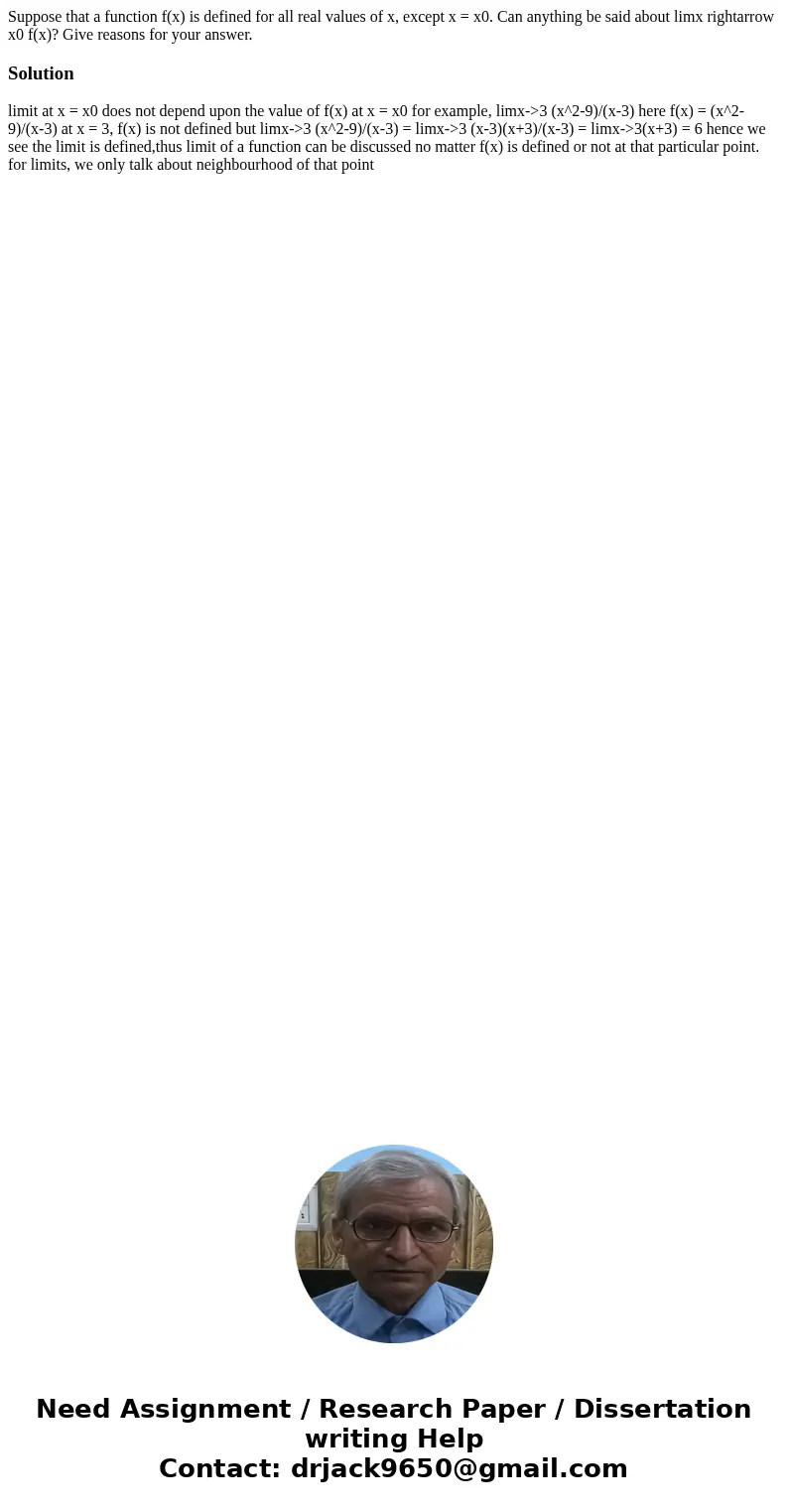Suppose that a function fx is defined for all real values of
Suppose that a function f(x) is defined for all real values of x, except x = x0. Can anything be said about limx rightarrow x0 f(x)? Give reasons for your answer.
Solution
limit at x = x0 does not depend upon the value of f(x) at x = x0 for example, limx->3 (x^2-9)/(x-3) here f(x) = (x^2-9)/(x-3) at x = 3, f(x) is not defined but limx->3 (x^2-9)/(x-3) = limx->3 (x-3)(x+3)/(x-3) = limx->3(x+3) = 6 hence we see the limit is defined,thus limit of a function can be discussed no matter f(x) is defined or not at that particular point. for limits, we only talk about neighbourhood of that point
 Homework Sourse
Homework Sourse